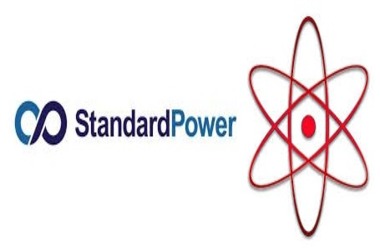
According to Standard Power CEO Maxim Serezhin, the company recognizes the challenges in securing sustainable and adequate electricity supplies for its new datacenters. Serezhin stated that, “We see a lot of legacy baseload grid capacity going offline with a lack of new sustainable baseload generation options on the market especially as power demand for artificial intelligence-computing and datacenters is growing.”
Datacenter Provider Sets Sights on Innovative Energy Solution
The datacenter facilities planned for Ohio and Pennsylvania are anticipated to have significant power demands, encompassing both blockchain mining activities and other computing workloads. To address this energy requirement, Standard Power intends to leverage NuScale’s small modular reactors, an innovative approach to power generation.
Standard Power envisions deploying a total of 24 of NuScale’s compact reactors across the two datacenter locations. These reactors boast an individual capacity of 77 megawatts, culminating in an impressive cumulative capacity of 1,848 megawatts for the entire setup.
NuScale’s Small Modular Reactors Aim to Address Energy Demands
While the announcement is promising, the realization of Standard Power’s nuclear ambitions may still be a few years away. NuScale’s reactors are set to be initially demonstrated at Idaho National Labs, with the first module expected to be operational in 2029. When asked about the anticipated operational timeline for their facilities, Standard Power has yet to provide a specific date.
As previously discussed, the concept of miniaturized nuclear reactors, known as Small Modular Reactors (SMRs), is not entirely novel, with the technology originating in the 1950s for applications such as submarines, including the USS Nautilus. The key innovations that SMRs bring to the table primarily revolve around advancements in manufacturing and modularity. These reactors can be mass-produced and deployed in clusters to cater to varying power requirements. Notably, NuScale has received approval from the US Nuclear Regulatory Commission for commercial deployment, marking a significant milestone in SMR technology development.
It is worth noting that Standard Power is not the only datacenter operator exploring the potential of nuclear power. Cumulus Data made headlines by establishing a datacenter adjacent to a full-scale nuclear plant earlier this year. Additionally, Microsoft has recently shown interest in recruiting personnel to explore the deployment of Small Modular Reactor systems to power its rapidly expanding cloud enterprise.
In conclusion, Standard Power’s decision to harness miniaturized nuclear reactors from NuScale signifies a forward-thinking approach to addressing the energy demands of its datacenter operations, which encompass a wide range of computing workloads, including blockchain mining. While the practical implementation may face some timeline challenges, the adoption of Small Modular Reactors represents a promising step towards sustainable and robust power generation for the datacenter industry.